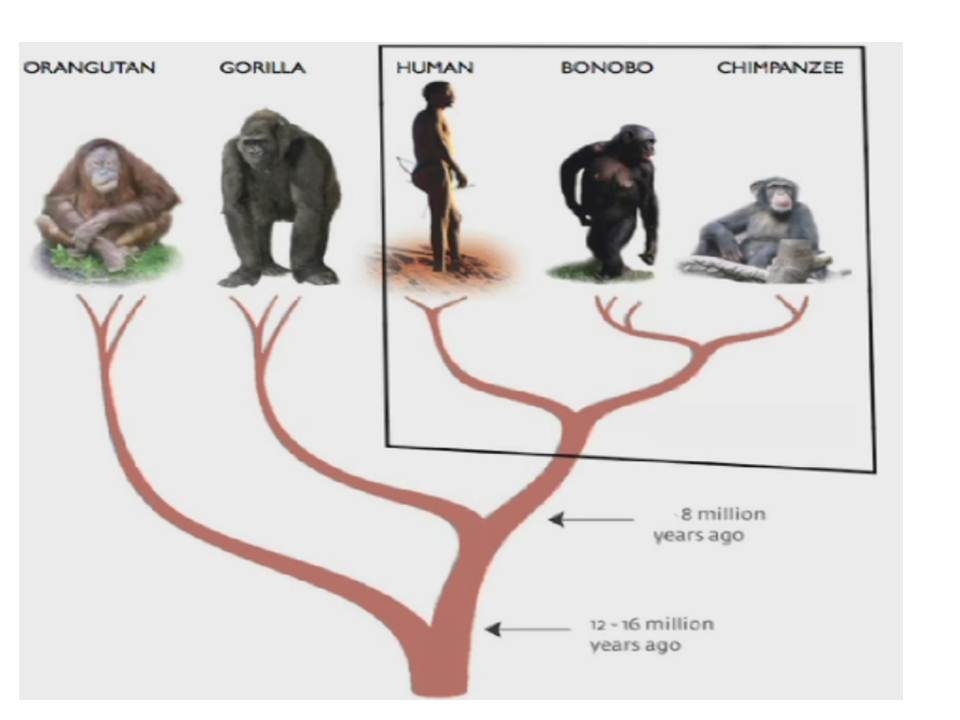Apes and humans at one point had a common ancestor, but we seem so drastically different. According to the video the bonobo ape and the chimpanzee are the closest relatives to humans. Behncke says, "That means we all share a common ancestor; an evolutionary grandmother that lived around 6 million years ago." That is how we are related. In a sense apes and humans are cousins. This video shows how simplistic and happy life can be. Life in bonobo society is actually a little different then human society. She says, "It's a place where women run the show, have sex to say hello, and play rules the day ... Where chimpanzees are dominated by big scary guys, bonobo society is run by empowered females. It's a highly tolerant society where fatal violence has not been observed yet." Chimpanzees are known for aggression, but bonobos are quite the opposite. In fact, they like to play. Isabel Behncke calls it the secret to human survival. We learn it and, even more, do it unconsciously in our childhood, but we forget it as we grow up. We forget the magic and mystery of playing. Bonobo chimps, who are very similar in genetics to us, solve all their problems by simple play. Behncke calls them, "make love not war apes" because they use peaceful things like game playing and sex to solve social issues between one another. There's no war or physical struggle for power. As humans, we consider ourselves to be so much more advanced than other creatures and yet we do things in such barbaric ways. The study of apes and our ancestrial history can tell us alot about where we're going for the future.
Studying and watching their social behaviour isn’t only interesting but giving the fact that bonobos learn from constantly playing — by themselves or with friends, makes the field study actually a lot of fun. Playing is a great way of releasing aggression and solving problems. Naturally there is more to the bonobos’ life than the Kamasutra, however sex and sex games take a big part in their lives and their community. Like Behncke said, "play is foundational for bonding relationships and fostering tolerance. It is where we learn to trust, we learn about the rules of the game. Play increases creativity and resilience and it's all about the generation of diversity. Diversity of interactions, diversity of behaviors, diversity of connections and when you watch bonobo play, you are seeing the very evolutionary roots of human laughter, dance, and ritual. Play is the glue that binds us together."
There are any types of forms of play in both bonobo and human society. Sometimes we play alone, like the bonobo that was sitting by the water in the video. Behncke states that, "we sometimes play alone and we explore the boundaries of our inner and our outer worlds. It's that playful curiosity that drives us to explore, drives us to interact, and then the unexpected connections will form." Playing is a major part of bonobo society and it has helped us to be able to see the destruction that humans have been causing with war. I guess you could say that we may be related to both bonobos and chimpanzees but we act more like chimpanzees than anything because of our violence and ways of solving problems. As a whole, we need to take a lesson from the bonobos and learn to play again. Playing is the key to our adaptation of the forever changing world in the future because with play comes more creativity and more cooperation. So In times when it seems least appropriate to play, it might be the times when it's the most urgent.

 RSS Feed
RSS Feed